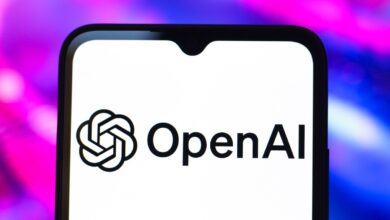Google Releases Three New Experimental Gemini Models

Google has just announced the release of three new experimental AI models, demonstrating continued innovation in this area while highlighting the rapid pace at which AI capabilities are developing.
At the forefront of Google’s new offerings is the Gemini 1.5 Flash 8B, a compact powerhouse designed to handle a wide range of multimodal tasks. This 8 billion parameter model represents a major achievement in AI efficiency, demonstrating that smaller models deliver significant performance.
The Flash 8B variant is particularly notable for its ability to handle high-volume tasks and long-context summarization. This capability makes it an attractive option for applications that require rapid processing of large amounts of data or the ability to understand and synthesize information from long documents.

Enhanced Gemini 1.5 Pro: Pushing the Limits
Building on the success of its predecessor, the updated Gemini 1.5 Pro model is an improved version that delivers superior performance in several internal benchmarks, with particular strengths when handling complex prompts and tackling coding tasks.
The improvements in Gemini 1.5 Pro are not just incremental improvements. According to Google, this new iteration outperforms its predecessor in every respect, signaling a significant leap forward in AI capabilities. These advances are particularly relevant for developers and companies working on advanced AI applications that require nuanced understanding and language generation.
Enhanced Gemini 1.5 Flash: speed and efficiency
Completing the trio of new releases is the updated Gemini 1.5 Flash model. While specific details about the improvements are less extensive in the announcement, Google reports that this model has shown significant performance improvements in many internal benchmarks.
The focus on improving the Flash model underlines the importance of speed and efficiency in AI applications. As companies and developers look to implement AI solutions at scale, models that can deliver fast results without sacrificing quality are becoming increasingly valuable.
These three models, each with unique strengths and capabilities, represent Google’s multi-faceted approach to advancing AI technology. By offering a range of options tailored to different needs and use cases, Google is positioning itself to meet the diverse demands of the AI market while pushing the boundaries of what is possible in language processing.
Implications for developers and AI applications
Google has made these experimental models available via Google AI Studio and the Gemini API. The Gemini 1.5 Flash 8B model can be accessed for free under the name “gemini-1.5-flash-8b-exp-0827“. The updated Gemini 1.5 Pro and Flash versions are available as “gemini-1.5-pro-exp-0827“And”gemini-1.5-flash-exp-0827“respectively.
These models provide new capabilities for developers working on:
- High volume data processing
- Long context summary
- Complex fast processing
- Advanced coding tasks
Google’s release of these experimental models primarily serves a dual purpose:
- Provide developers with advanced tools
- Gathering real-world feedback to inform future improvements
The company plans to use insights from these experimental launches to refine the models before wider release.
Google’s AI strategy is becoming clearer
Google’s strategy is becoming increasingly clear, with the company focusing on developing both high-capacity models and more efficient, task-specific variants. This approach is intended to meet a wide range of AI applications, from resource-intensive tasks to tasks that require fast, lightweight processing.
The release of these experimental models, which closely follow previous versions, demonstrates Google’s commitment to rapid development cycles in AI. This agile approach makes it possible to quickly implement improvements and adjustments based on user feedback.
By continuously updating and expanding its range of AI models, Google maintains its position as a major player in the field of AI. This strategy competes directly with other major technology companies developing large language models and AI tools.
These releases also emphasize the importance of real-world testing in AI development. By making experimental models available to developers, Google accelerates the feedback loop and practical application of AI technologies.
The bottom line
Google’s release of the three experimental AI models – Gemini 1.5 Flash 8B, enhanced Gemini 1.5 Pro and enhanced Gemini 1.5 Flash – marks a significant advancement in language processing technology. Balancing power and efficiency, these models are suitable for a variety of AI applications, from high-volume data processing to complex coding tasks. By making these tools accessible to developers and prioritizing real-world feedback, Google is not only strengthening its position in the competitive AI landscape, but also accelerating the evolution of AI capabilities.






